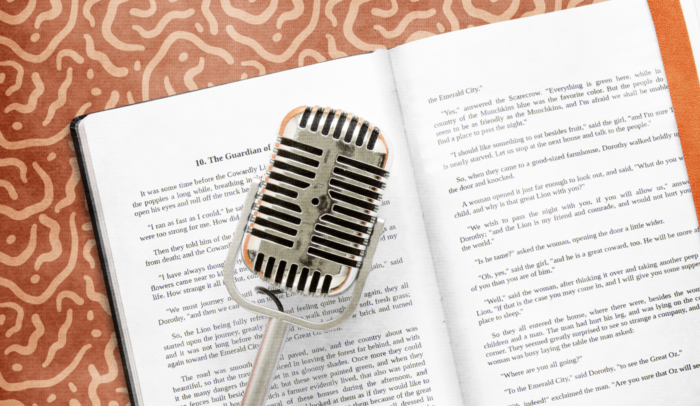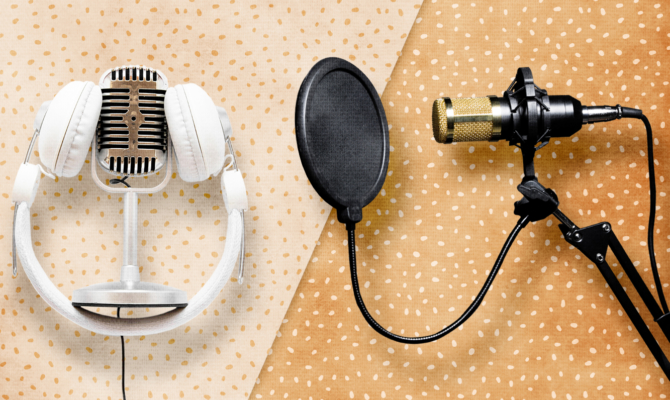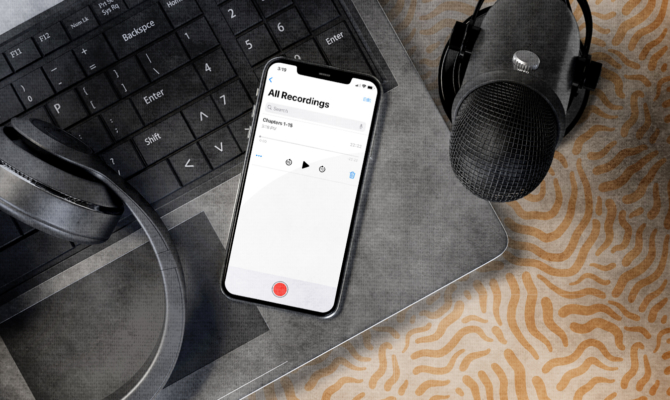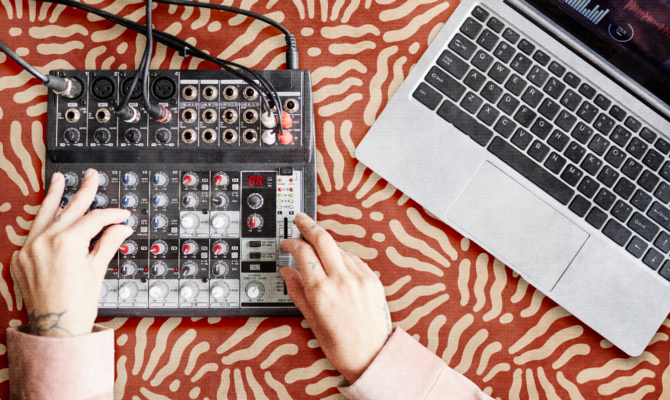You’ve written your book, and you’d like to create an audiobook edition. How do you do it?
This post walks you through the process, guiding you step-by-step how to:
- choose your best production path
- record an audiobook yourself
- hire audiobook recording services
Table of Contents
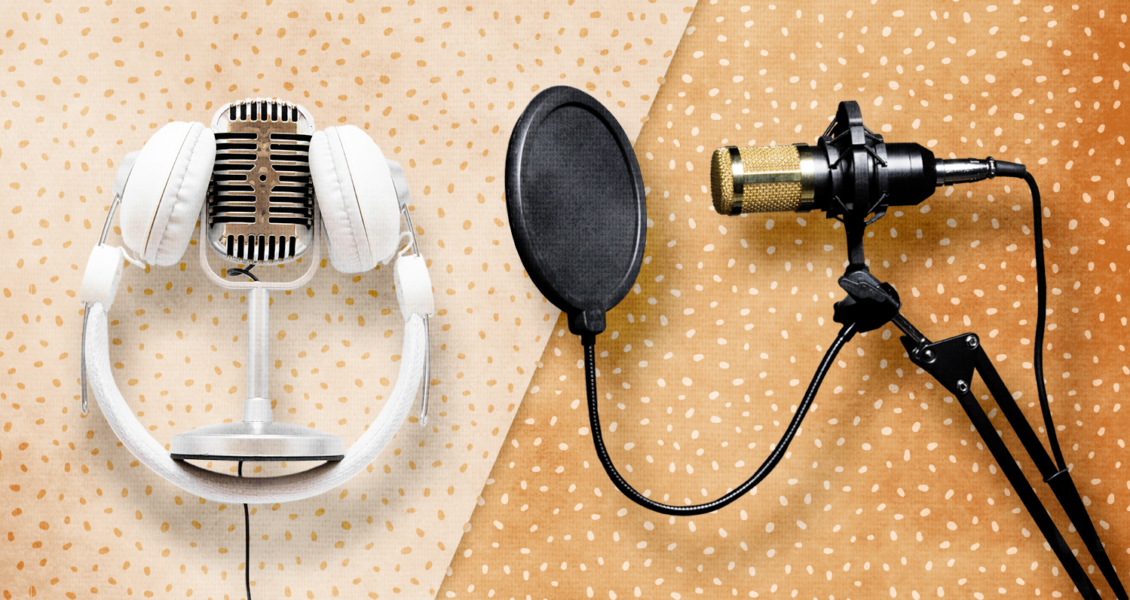
Chapter 1
DIY Audiobooks vs Audiobook Recording Services
There are 3 main paths to creating an audiobook, so the first step in any audiobook project is to decide which path you want to take.
This section walks through what it takes to make an audiobook, the 3 ways to create one, and how to choose the best path for you.
What It Takes to Make an Audiobook
The most important thing to consider with an audiobook is file quality.
I am not saying this because I’m an audio nerd and insist on everything being perfect. I’m telling you because there are strict standards for file quality that you have to meet or Audible will not accept your finished audiobook.
It’s possible to create a quality DIY audiobook, doing everything yourself from start to finish, but it is not easy.
Every chapter has to be its own file and must fall within the parameters set by your distribution platform. Background noise has to stay below a very strict minimum. The quality, tone, and noise floor must be consistent across every chapter.
- Each chapter must be its own file and have an RMS between -23dB and -18dB
- Peaks cannot exceed -3dB
- The noise floor cannot exceed -60dB
- The overall Quality, Tone, and room tone must be consistent throughout the entire audiobook
I have seen it happen many times where an Author records their audiobook themselves, and it doesn’t pass distribution specs.
Even if you handled every aspect of your book’s publication yourself, you might not find it worth the time to learn all the skills that go into quality audio production.
Fortunately, there are audiobook services to handle each and every aspect of your audiobook’s production, whether you want to hire an audio engineer, a professional narrator, or a full start-to-finish turnkey solution.
3 Paths to Creating an Audiobook
Path 1. Record and produce it yourself
If you choose this path, you will:
- record the entire narration yourself
- engineer all the sound files
- and package the finished files into an audiobook.
This is the hardest path (unless you already have these skills).
Path 2. Record it yourself and hire an experienced audiobook engineer
If you choose this path, you’ll record the narration, but you’ll hire someone else to engineer and package the sound files into a finished audiobook.
Path 3. Hire a full-service production company like Scribe Media for the entire Audiobook creation process
This is the most expensive path, but it’s (usually) the right one.
High-quality audio narration is not easy, and audio engineering is a highly technical profession.
Even if you can learn to do either or both of these things well, it’s usually not worth the time it would take you to do both.
For most Authors, path #2 or #3 will be the best choice.
Which Path Is Right for You?
Deciding which path is right for you isn’t complicated, but it’s important to think carefully about each step in the decision process, and how each path changes the variables.
Choice 1. Narration
A professional narrator can make a world of difference to the quality of the final audiobook. They are experienced and capable performers who can capture your voice.
They understand the nuances of tone and how to maintain strict volume levels as they speak.
Just as important to the quality of sound, a professional narrator is able to cut down on the number of hours needed to record.
In making this decision, cost is an obvious factor.
Audiobook narrators charge Per Finished Hour rates that are in line with SAG-AFTRA guidelines. You can expect to pay around $225 PFH and the narrator will likely ask you to use a union paymaster to make sure a contribution is made to their P&H. This structure means they charge based on the length of the final book, not the number of hours they work.
Typically, a professional narrator will record at 9,000 words/hour. That means a 45,000 word book would ultimately be 5 hours long and would take 10 hours to record if a pro narrator was handling it.
Here’s what that means for a finished audiobook. At Scribe, we recommend an average of 9,000 words per hour in a finished nonfiction book. For a 45,000-word book, that’s about 5 hours, for a total cost of about $2,000.
This does not include audiobook cover art, distribution, book blurbs, or any kind of marketing.
If that sounds like a lot, consider this: narration takes twice as long as the finished book for an experienced narrator. But that doesn’t include prep work.
Editing plus engineering takes at least 3 hours per finished hour. Add in a final control pass, and you’re looking at more than 6 hours of actual work per finished hour, or 30 hours for that 5-hour audiobook.
If you’re starting from ground zero, it will take you far more than 30 hours to produce a quality product.
An author should really only consider narrating their own book if they are an experienced actor or if they are presently or are trying to be a public speaker.
Audiobook narration is not simply reading a book out loud. It involves a performance that must capture and maintain the listeners’ attention for hours.
If one of these is true, you will need a way to record the narration.
The best option is to use a professional recording studio.
Expect to pay about $100 per hour in the studio. Because the process of recording the narration takes twice as long as the finished book, that would be 10 hours in the studio for a 45,000-word book.
The studio cost of narrating that book would be $1,000 at $100/hour. That’s very reasonable, considering that if you don’t use a studio, you’ll still need:
- a room with soundproofing and sound absorptive materials
- a budget for sound equipment
- audio recording software
When researching recording studio prices, make sure the rental cost includes a sound engineer to work the recording booth.
Choice 2. Engineering
Sound engineers edit the audio files, ensure the final sound quality, and package them into a finished audiobook that is ready to upload to your distributor.
There are different specifications for Audiobooks, so it’s important your sound engineer has experience in the audiobook world specifically.
Even if you narrate the book yourself, you’ll want to hire out the production process unless you’re a professional sound engineer.
It’s a lot more common to find full audiobook production services than engineering services alone, but you can find sound engineers on freelancing sites like Upwork and Fiverr. Be sure to vet their audiobook experience carefully if you don’t have a solid referral from someone you trust.
Like anything else, you can save money by doing the entire project yourself, but it takes a lot of hours to learn even the basics of audio engineering—easily 10+ times the 15 (or more) actual hours it would take a professional to engineer one 40,000-word book.
When researching local recording studios, ask whether they offer package deals on finished audiobook production of files recorded in their studio.
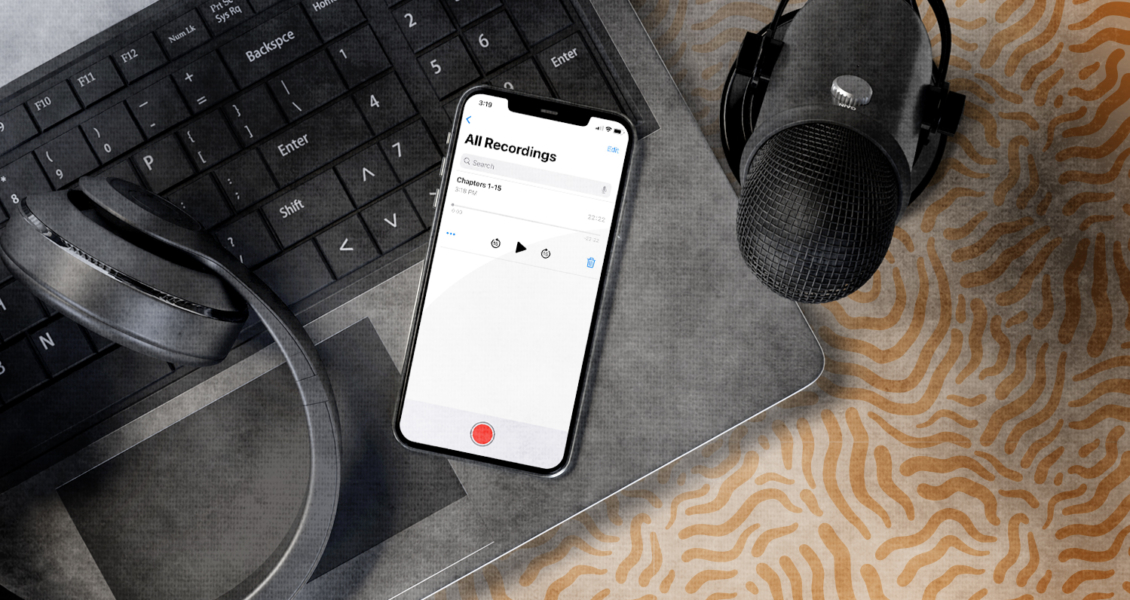
Chapter 2
How to Record Your Own Audiobook
Setting up a home studio
If you decide to record your audiobook at home, you’ll need 3 main components for your home studio:
- A professional vocal booth
- solid recording equipment
- good audiobook recording software
Creating the right space
The first step in creating a home recording studio is to create the right space. If you don’t have a quiet place to record, it isn’t worth the money to buy equipment or software that you won’t be able to use.
The room needs to be treated. It’s not enough to keep noise out. You also need to keep your voice from bouncing around the room.
Distribution platforms have strict requirements for background noise. If your finished audiobook does not meet these standards, they will reject it.
You can find soundproofing materials to reduce external noise, but there are several common noise issues for home studios that have nothing to do with the outside world:
- heating & air conditioning vent fans
- large appliances like refrigerators
- pipe noise from running water
- interference from electrical equipment
In most modern homes, there is a lot of background noise that we aren’t aware of. We think it’s quiet because we’re so used to it that we tune it out, but those small hums will show up in your recording.
Even worse, the electronics that pervade the modern home can interfere with recording devices. When this happens, you’ll hear an electrical noise or rhythmic ticking in your recording no matter how quiet the room is.
To minimize this risk, turn off everything you can while you’re recording (including your wi-fi), and plug your recording equipment into the same outlet as your computer.
Equipment
To record your own audiobook narration files, you will need:
- a computer
- expert recording software
- headphones
- a microphone
- a pop filter
- a professional interface/preamp
Computer. The computer can be a PC or a Mac. Desktops are often better, but a laptop can work in a pinch.
The computer itself should not be in the recording space. Only the monitor and a wireless mouse and keyboard should be in the recording space.
Headphones. Entirely optional, but they are beneficial as you will hear your own voice and any noise your mic picks up.
They should plug into your interface, but they can plug into your computer if that’s your preference and your computer talks with your DAW.
Microphone. Large Diaphragm Condenser mics are most typically used with audiobook recordings.
Condensers will require phantom power, dynamic mics will not. But, because dynamic mics aren’t as sensitive you generally need to crank the input gain. An inline preamp like a cloud lifter or dynamite can provide upwards of 20dB clean gain before the mic hits the preamp and therefore won’t need you to hit the preamp as hard.
Pop filter. A pop screen filters out the worst of plosives created by certain consonants.
Audiobook recording software
Audacity is by far the most popular app and can be used on either Mac or PC.
Other popular recording software includes: Reaper, Twisted Wave, Studio One, and Pro Tools.
No one should be recording their Audiobook on Garage Band.
Recording at a pro studio
If you decide to record the audiobook yourself using a professional recording studio, here are a few tips to make sure you get the most out of your time:
Time slots. To figure out how much recording time your book will need, divide the total word count by 9,000 (the average number of words per hour) and then multiply it by 3.
A 45,000-word book, for example, will need about 15 hours of recording time.
Hydrate. Drink plenty of water the night before, start again in the morning as soon as you wake up, and bring water with you. It isn’t about your health; it’s about voice quality. If you’re even slightly dehydrated, your tongue will start sticking to the roof of your mouth, adding horrendous mouth sounds that can render your entire recording useless.
Water should be room temp. Hot coffee and tea with honey are great. No cold drinks. Green apples also help reduce mouth noise.
General recording tips (home or studio)
Whether you record your own narration at home or in a studio, these additional tips will raise your audio quality and make your audiobook sound more professional:
Maintain a steady pace. Even if you’ve practiced ahead of time, remember to maintain that pace throughout the session. It’s tempting, after a while, to start speeding up to get through it faster. Don’t. If you feel yourself getting impatient, it’s time to stop and rest.
Remember, you are not reading, you are performing. Pronounce things clearly but don’t over-enunciate. Conversely, don’t slur. You want to make sure your listeners can understand and process what you are sharing with them.
Let the story breathe!
This is a performance. You want to maintain a voice level as much as possible, but if the scene calls for intensity, be intense! The main thing to remember is not to distort your voice.
If this concept is difficult or doesn’t make sense to you, take that as an indicator that you should be using a professional narrator.
Read every word. As the Author, you’re the rights holder, but just because you can change the wording doesn’t mean you should. Kindle’s Whispersync system lets people switch easily between the Kindle and audiobook versions of your book. If there are variations between the two versions, Whispersync won’t work, and readers will be frustrated.
Record the room tone. Room tone is the sound of the room. Record 30 seconds of clean room tone at the end of every recording session and send that to the editor with the rest of the audio. This will help your audio engineer edit the audio files.
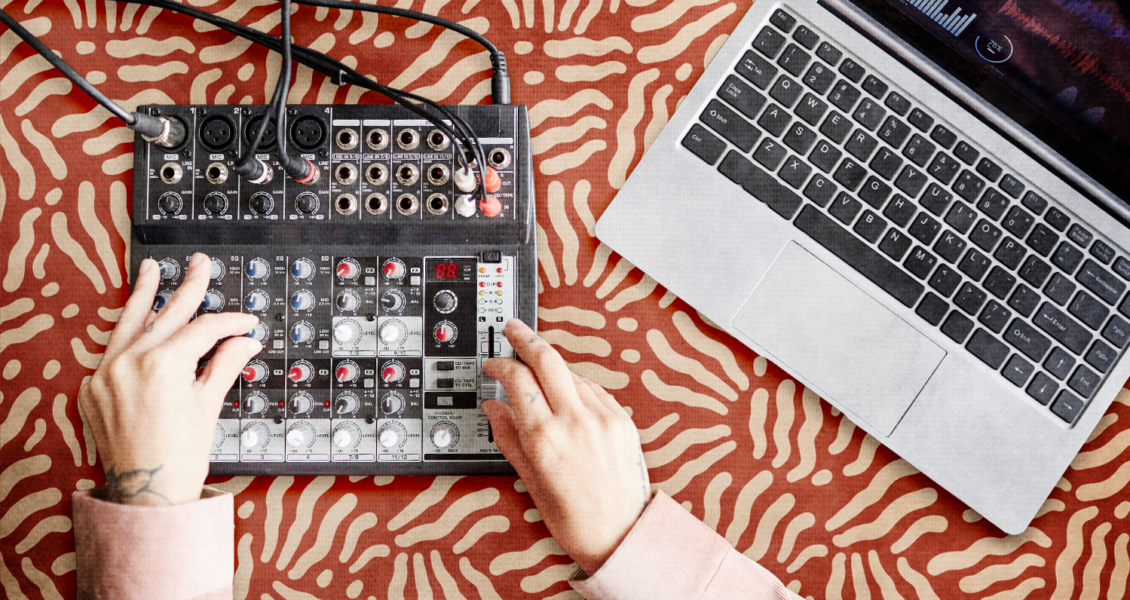
Chapter 3
How to Hire an Audiobook Production Service
Whether you need to hire a sound engineer or a full-service production company like Scribe Media, here’s what to look for.
Audio engineers & producers
As I mentioned earlier, you can find audio engineers on any freelancing site, but one is not the same as the next:
Audiobooks are unique. Just because an engineer has a lot of experience editing music does not mean they’ll be great at engineering an audiobook. Audiobooks have a specific structure, and the final result must fit within strict limitations, or distribution platforms won’t accept them. Chapter files are also much longer than most music tracks and involve only the spoken word. Ask for samples.
Screen their portfolio. When an engineer gives you a portfolio of audiobooks, listen to the samples through headphones. Most computer speakers don’t provide enough sound clarity to highlight problems with hiss or other background noise.
Find the books on Audible. Don’t settle for a portfolio of short audio clips on an engineer’s own website. Find each final book on Audible, listen to the Audible sample, and make sure the producer is given credit on the copyright page.
Hiring out the whole project
Whether you’re looking for an independent audiobook producer or posting a project on ACX.com, make sure you choose the right person for your project:
Think about the voice. The voice of your book is an important marketing decision and needs to match your author branding. Look for a company like Scribe Media (thousands of narrators) with a strong network.
Read reviews from other Authors. The more, the better. Make sure your audiobook narrator has enough experience to trust that your own project will run smoothly.
Find the books on Audible. Again, make sure their portfolio links to actual books on Audible that credit the narrator and producer. Listen to samples to make sure the portfolio matches the finished product.
Know what you’re getting. Make sure it’s 100% clear what they will and won’t deliver, by asking the right questions:
- Are they only providing narration files, or will they deliver a finished audiobook, ready for uploading?
- If you want music in the intro, will they provide it?
- Will they write the intro credits, or do you need to write them?
- Will they produce your cover image, or do you need to provide it? (Audiobook covers are square, not rectangular, so you can’t use your book cover as is.)
- Will they distribute the audiobook for you, or do you need to upload it?
- If they will distribute the audiobook, who will be the official publisher?
Know what you’re giving. It’s equally important to make sure you’re 100% clear on what your producer is getting from you. Some producers offer reduced rates in exchange for taking a percentage of your royalties. This can end up being a lot of money for a book that sells a lot of copies, so make sure you understand the deal upfront.
Scribe Media does Audiobooks, too.
If you’re looking for a full-service Audiobook company, Scribe Media could be the right fit for you. You get the same world-class service we’ve provided to over 2,000 Authors, including David Goggins, Tiffany Haddish, and Nassim Taleb.
The Scribe Audiobook service includes everything you need, from pairing you with a professional narrator (or coaching you to narrate it yourself), to producing and distributing it to the world.
Check out Scribe Media’s Audiobook Service page for more information or to book your consultation.


